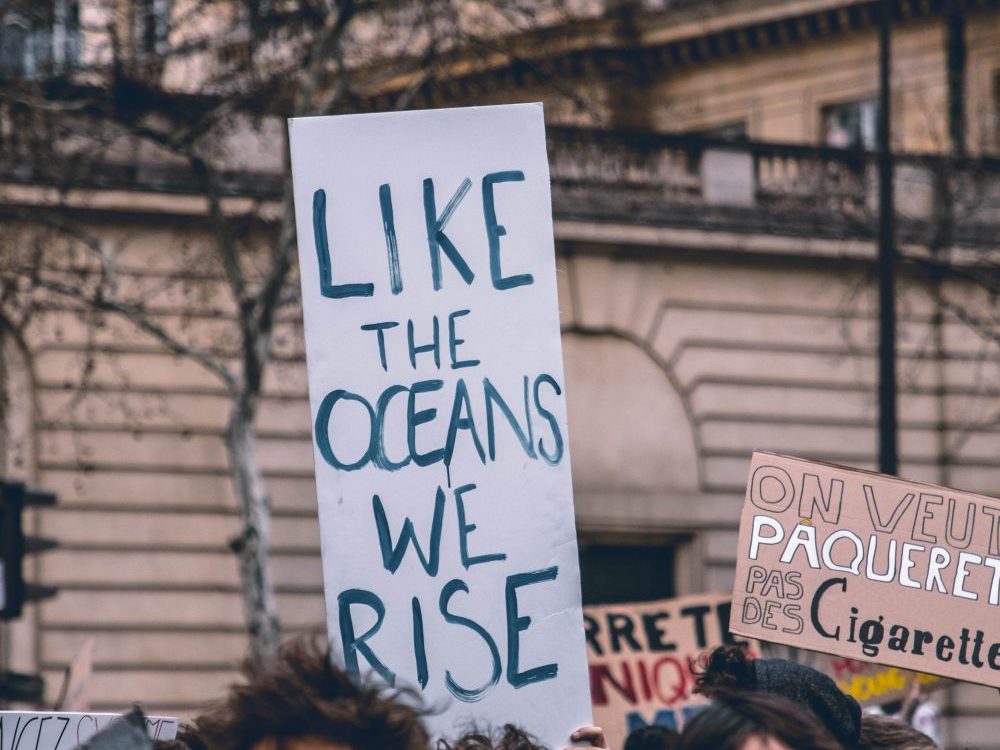While some (cough, the majority of our world leaders) might prefer to bury their heads in the sand when it comes to the topic of climate change, for the rest of us it can be the source of constant angst.
Statistics show that the state of our planet is the second-largest worry among young people in Britain today, second only to Brexit. And it’s hard not to feel a touch concerned.
With every new damning academic report or impassioned speech from a teenage environmental activist comes a fresh wave of overwhelm and fear.
But for some, there’s no reprieve from that cycle of grief and angst – and it is negatively impacting their wellbeing. These people have eco-anxiety, defined by the American Psychological Association as a “chronic fear of environmental doom.”
21-year-old student Laura Mythen is one of them. “Sometimes the fear and horror of learning about what is happening in the world is paralysing, as if I can’t move or breathe from grief and guilt and it feels as if nothing can be done, or as if it will never be enough,” says Laura, who admits that she’s been feeling increasingly anxious about climate change for the past four years.
Eco anxiety – also sometimes referred to as climate or ecological grief – is associated with a set of feelings, such as anxiety, sadness, worry, overwhelm and grief, that sufferers experience as a direct result of thinking about the planet and climate change.
Thankfully, Laura has found an unlikely but effective coping mechanism – gardening. “There are so many incredible things about gardening which help me manage my anxiety and stay active rather than giving up,” says Laura. “I think one of the best things is that what you are doing is tangible – it actually makes a difference which you can see and feel and benefit from.”
The science-backed reasons behind why Laura’s anxiety lifts when she spends time in the garden are twofold, says Dr Susie Burke, an Australian psychologist and academic who specialises in eco-psychology. Being out in the garden is an emotional-focused coping strategy (it’s soothing) and it’s also a problem-focused coping strategy (for example, planting flowers that attract bees make you feel as though you’re doing something positive to tackle the problem).
For Emma Palmer, a Bristol-based psychotherapist and ecopsychologist who has witnessed the growth of horticultural therapy for the past two decades, the reasons behind gardening’s healing powers go deeper than that.
“To learn how to grow things well we have to learn about the life cycle of plants and the interaction of heat and nourishment – all the conditions for life, which means we take time to reflect on those, and extending life beyond being with other humans,” explains Emma, who notes that some studies have even linked contact with soil to a natural anti-depressant.
Laura, who is part of a community gardening project at her university, agrees. “Using methods that help regenerate local ecology in places which have experienced disruption is transformative not only for the physical space but for myself too. Gardening has helped me interact with nature in a way which helps me feel closer to and part of nature rather than separate from it, which is hugely comforting. When I am outside with plants I can feel held by nature.”
While it might seem unusual for a twenty-something to spend so much time in the garden, Laura’s certainly not alone when it comes to her newfound passion.
Feed Bristol, a Bristol-based gardening hub, has seen an increase in younger volunteers keen to learn more about ecological land management and sustainable food growing. “We are seeing many young people – and particularly young women – coming to our Feed Bristol project because they want to address the anxiety they are feeling about climate crisis and the state of the environment, and make a positive change for nature, says Matt Cracknell, Avon Wildlife Trust Feed Bristol project manager.
Regardless of how you decide to tackle your eco-anxiety, Emma would like to point out that there’s nothing abnormal about feeling anxious about the existential crisis we’re currently facing.
“Eco-anxiety is a completely healthy response to what we are witnessing happening in the world, even though the symptoms can be very difficult,” she concludes.
“There’s nothing ‘disordered’ about feeling anxiety about the harm humans are causing the planet and the consequential events.”
If you are experiencing depression or anxiety and feel you need support, please call Mind on 0300 123 3393.









